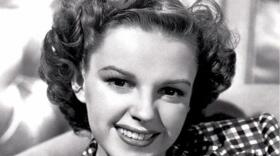I woke up on November 6 devastated, sleepy and grumpy.
To make life more challenging, I had to devise a talk for a local Council on Aging about Thanksgiving. The group was expecting me to be funny — or at least upbeat. I didn’t feel upbeat. Or thankful.
Even so, as I pondered Thanksgiving, I realized that its history might provide the balm I needed.
The myth of what we call the "First Thanksgiving" has undergone challenges in recent years. The harvest festival in Plymouth in 1621 wasn’t the first Thanksgiving in what is now the United States, we have learned. Earlier challengers to this title have been identified in Texas, Florida, Maine and Virginia.
We have also learned that the colonists and their Indigenous hosts were as much keeping a wary eye on each other as offering friendship. And we can’t ignore the slaughter that came in the months and years after the feast.
Nevertheless, I believe that harvest celebration is an important story. It commemorates at least limited cooperation between Europeans and Native Americans. And it shows us what a great people Americans can be if we share what we have.
Another challenging Thanksgiving also comforted me. In November 1863, a week after writing and delivering the Gettysburg Address, Abraham Lincoln led Americans in celebrating our first National Day of Thanksgiving.
To Lincoln, Thanksgiving was a particularly appropriate holiday for a nation in the midst of a civil war. He knew that when we are feeling the most stress, we have the greatest need to be thankful. His genius was the realization that a nation at war needed to stop, take stock of its blessings, and express gratitude for them — perhaps even more than a nation at peace.
This year on Thanksgiving, we aren’t in a civil war. Still, many of us are at odds. Remembering and being thankful for our blessings and our commonalities may help us come together as a nation once more.
Happy Thanksgiving. Pass the cranberry sauce.
Tinky Weisblat is a writer, historian and singer who lives in Hawley, Massachusetts.








